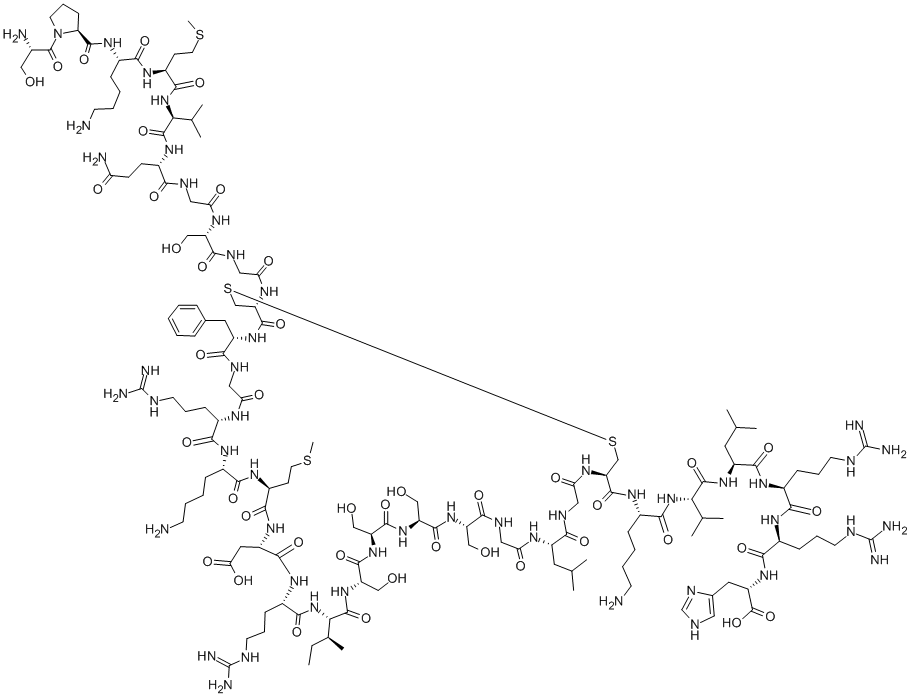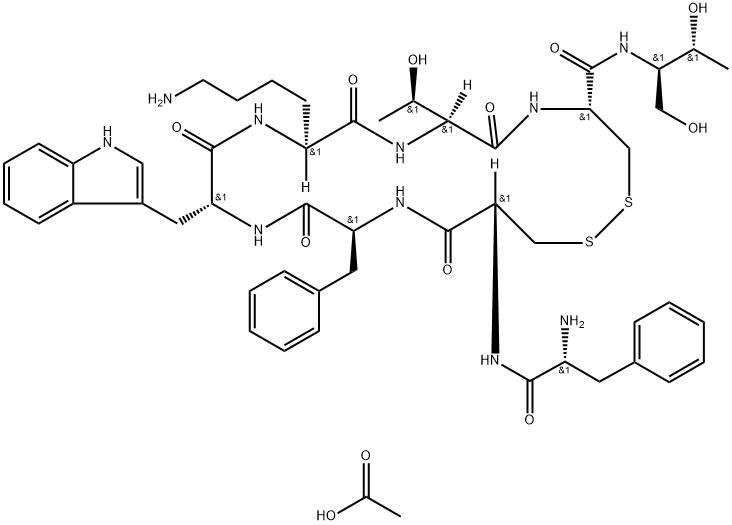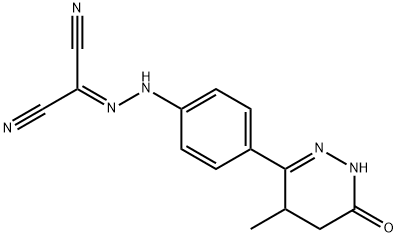Nesiritide was introduced in the US as a new intravenous treatment for patients with
acutely decompensated congestive heart failure who have dyspnea at rest or with minimal
activity. Nesiritide is the first human recombinant form of the potent vasodilatory B-type
natriuretic peptide (also known as brain natriuretic peptide), a naturally occurring 32 amino
acid peptide with a disulfide-bonded 17 amino acid ring structure. Nesiritide binds to the Atype
natriuretic peptide receptor on the surface of endothelial and smooth muscle cells
stimulating production of the second messenger cGMP which mediates predominantly
vascular smooth muscle cell relaxation. It also facilitates the elimination of sodium and
water by the kidney and decreases the secretion of certain hormones, such as adrenalin,
angiotensin II, aldosterone and endothelin, which provoke long-term detrimental effects
including blood vessel constriction and blood pressure elevation. In clinical trials with heart
failure patients, nesidtide dose-dependently reduced pulmonary capillary wedge pressure,
right atrial pressure and systemic vascular resistance and increased cardiac index without
affecting heart rate. The major adverse effect observed was dose-dependent hypotension.
In a phase III comparative trial, nesiritide was found to be superior to iv. nitroglycerine in its
haemodynamic effects as well as easier to administer and better tolerated. Nesiritide is
cleared by proteolytic cleavage by the enzyme neutral endopeptidase NEP24.11 and by
binding to the C-type natriuretic peptide receptor followed by endocytosis and intracellular
lysosomal hydrolysis. Since it has a short half-life (18 min), nesiritide is administered as a
21μg/kg bolus infusion followed by a continuous maintenance infusion at 0.011μg/kg/min
usually over 24-48 hours.
Brain natriuretic peptide is originally isolated from brain, but is mainly produced in myoendocrine cells of the heart ventricles from which it is released into the circulation. It is involved in blood pressure control and cardiovascular homeostasis.





